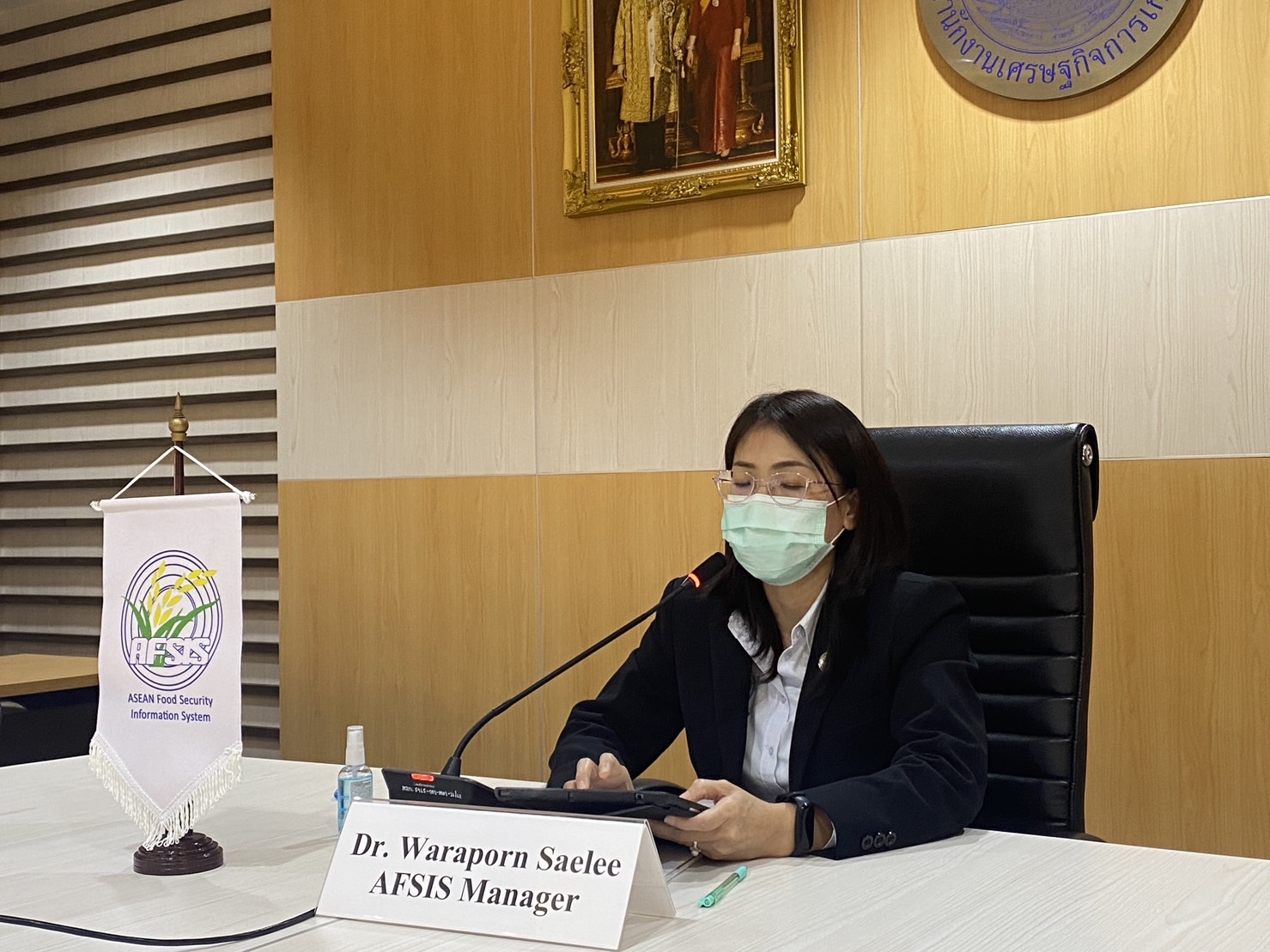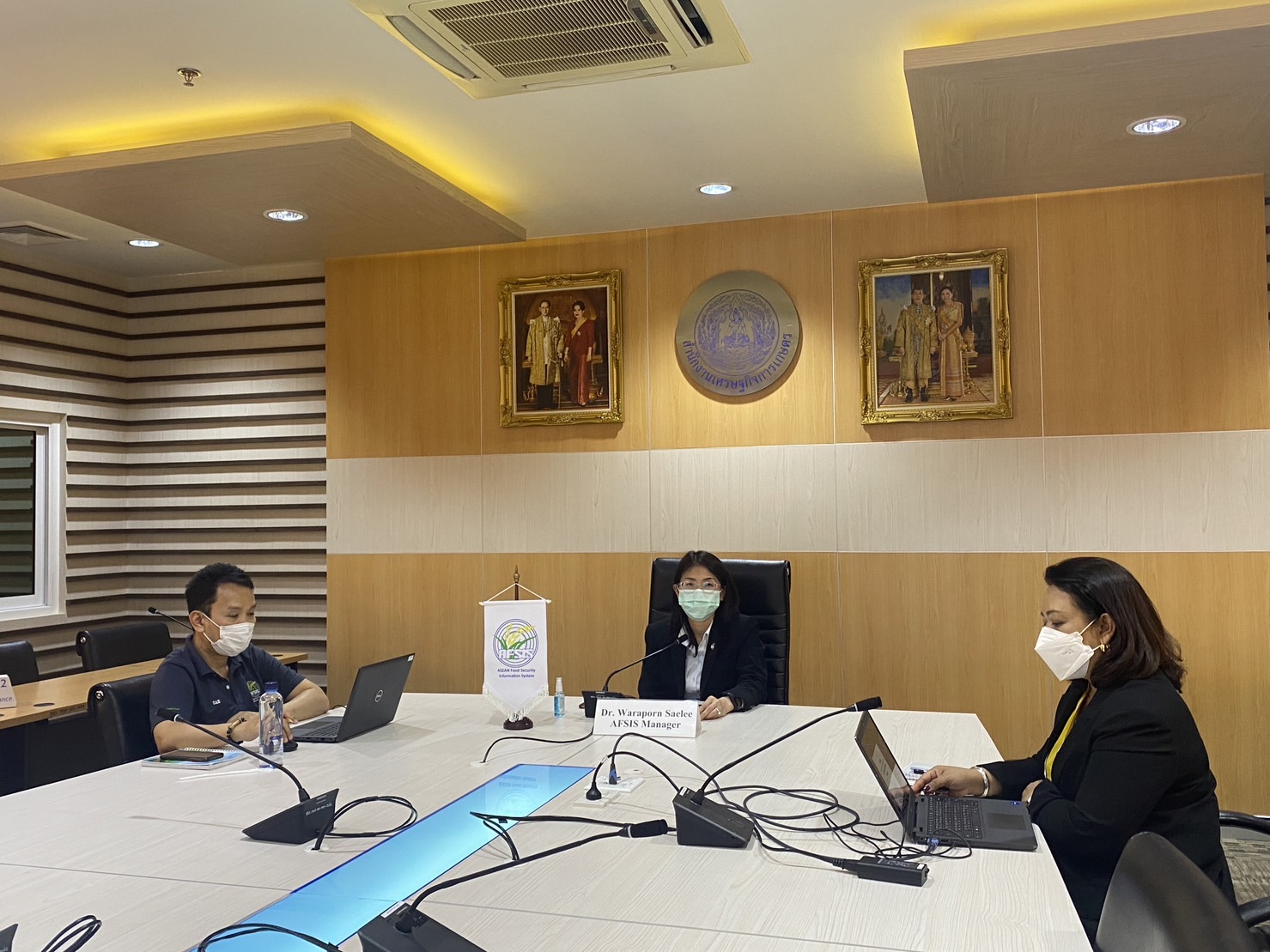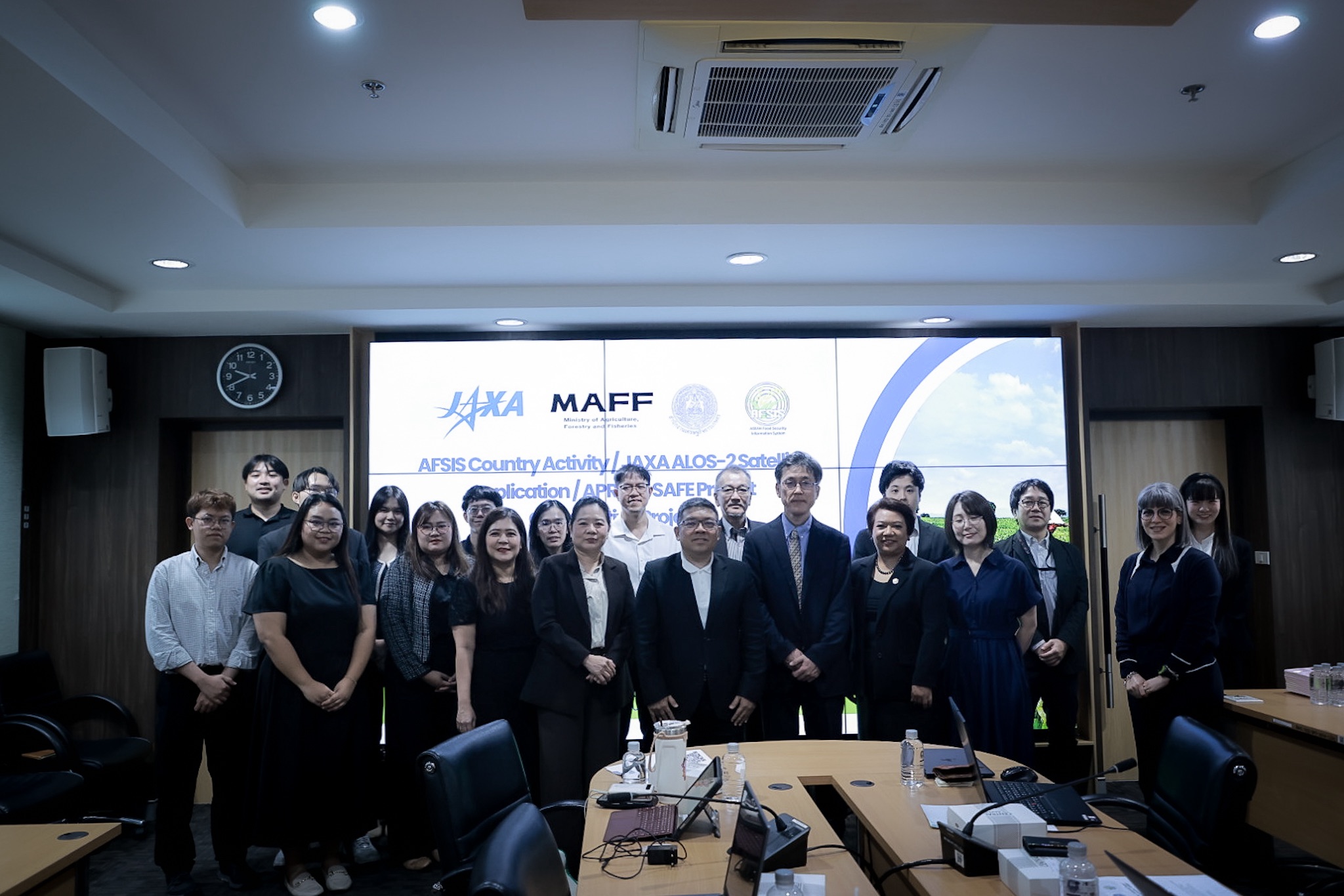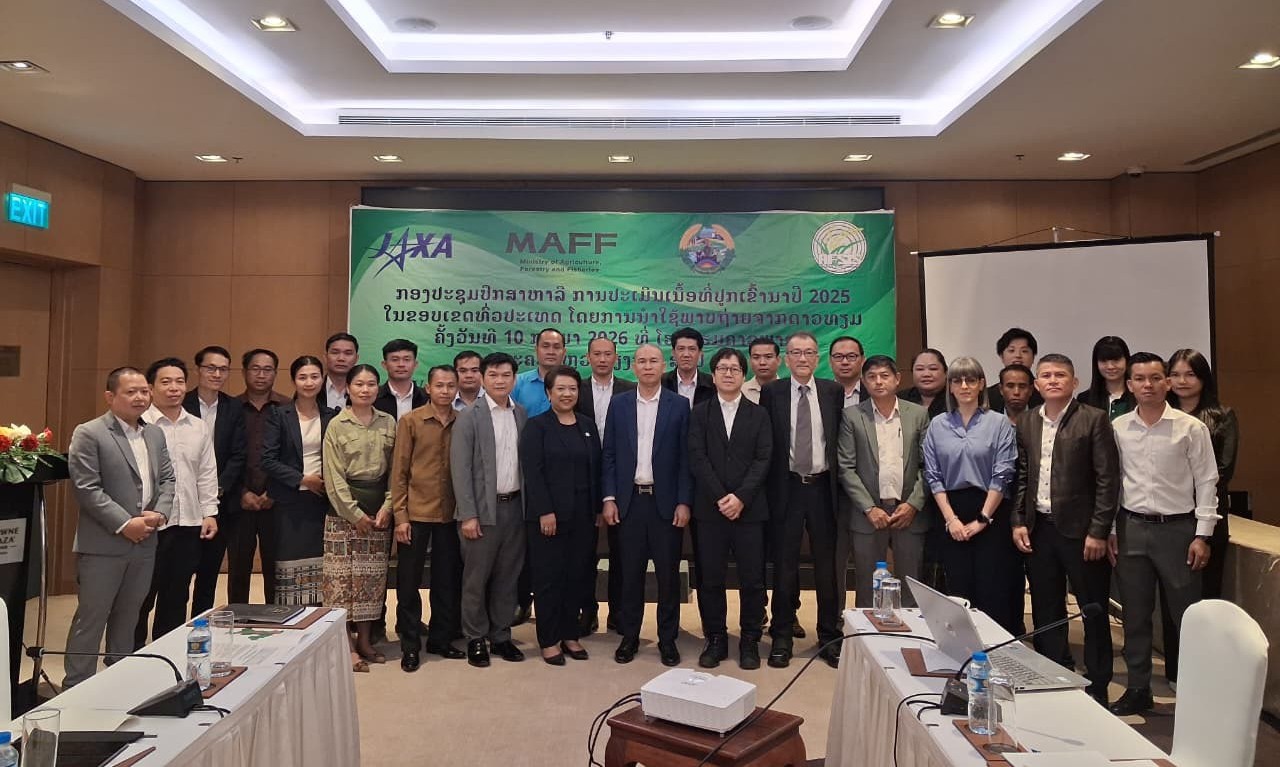.png)
On 14 November 2022, the Asia-Pacific Regional Space Agency Forum (APRSAF) Space Applications for Environment (SAFE) Initiative with the collaboration of Japan Aerospace Exploration Agency (JAXA), Japan, the Indian Space Research Organization (ISRO) of India, Geo-Informatics and Space Technology Development Agency (GISTDA) of Thailand, Vietnam National Space Center (VNSC), and AFSIS Secretariat organized the online Training Program on Satellite-Derived Rice Planted Area Data for AFSIS’s Rice Growing Outlook (RGO) for Agriculture Management in the ASEAN which is the second training following the previous program in July 2022.
The representatives from AFSIS Secretariat attending the training were Dr. Waraporn Saelee, AFSIS Manager, Dr. Sumanya Ngandee, Deputy AFSIS Manage, Mr. Tanabodee Kheosipalard, Statistician, and Ms. Prodpran Lomthong, Project Coordinator.
There were 23 trainees from 9 ASEAN member countries namely Brunei Darussalam, Cambodia, Indonesia, Lao PDR, Malaysia, Myanmar, Philippines, Thailand, and Vietnam.
During the opening session, Dr. Waraporn Saelee delivered her opening remarks to welcome all participants, and expressed her appreciation to above-stated organizations for their contribution and cooperation to the training.
The training aimed to provide the trainees of the utilization of satellite derived agromet data which the content of the training was on the use of JAXA Rice Mapping Tool “INAHOR” on the Google Earth Engine (GEE). There were remarkable presentations from Mr. Shoji KIMURA, a RGO instructor, about the Improvement of Agricultural Statistics using INAHOR, and from Dr. Hashemvand Khiabani Pegah of RESTEC regarding the lecture on INAHOR program. The trainees learned step-by-step on how to prepare the required information and program, create the training data and estimate the rice crop area by GEE.
The training was successfully conducted as the trainees were effectively imparted with the knowledge of agromet data utilization which can be used as reference information for generating AFSIS’s RGO report and developing the agricultural information system in their countries.


.png)
.png)
.png)
.png)
.png)

On 12-13 February 2026, the AFSIS Secretariat, in collaboration with the Japan Aerospace Exploration Agency (JAXA), the Remote Sensing Technology Center of Japan (RESTEC), Ministry of Agriculture, Forestry and Fisheries (MAFF) Japan and the Office of Agricultural Economics (OAE), Ministry of Agriculture Cooperatives (MOAC), conducted a workshop conducted a workshop The Promoting Rice Planted Area and Production Estimation Using INAHOR and Space-based Technologies in Thailand at the Meeting Room 2, Innovation Building, 3rd FL, Office of Agricultural Economics (OAE)

The In-Country Workshop on Promoting Rice Planted Area and Production Estimation Using Space-based Technologies in Lao PDR was jointly organized by AFSIS Secretariat, JAXA, MAFF Japan, and MAE Lao PDR under the AFSIS-GIS and SAFE projects. The event was held in Vientiane with hands-on training on 9 February 2026 and a workshop on 10 February 2026.
.jpg)
On 13–15 January 2026, the Office of Agricultural Economics (OAE), Thailand, in collaboration with the Ministry of Agriculture, Forestry and Fisheries (MAFF), Japan, and the AFSIS Secretariat, conducted the 1st Meeting of Japan–Thailand Expert Dialogue on Agricultural Statistics. The meeting was held at the Office of Agricultural Economics and field survey activities in Chonburi Province.

On 3–4 December 2025, the ASEAN Food Security Information System (AFSIS) Secretariat participated in the ASEAN Plus Three Emergency Rice Reserve (APTERR) Table Top Exercise (TTX) held in Bandar Seri Begawan, Brunei Darussalam.